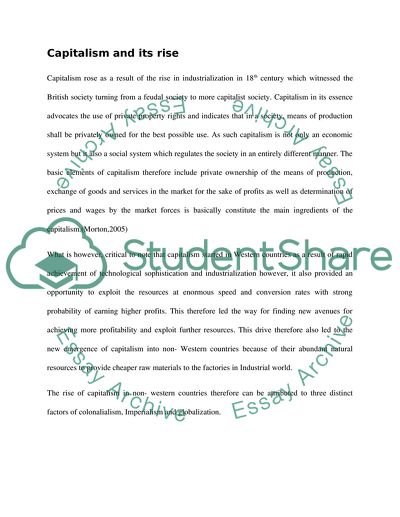Cite this document
(“Is Capitalism a fundamentally Western concept or system, and if so, Essay”, n.d.)
Retrieved from https://studentshare.org/miscellaneous/1561671-is-capitalism-a-fundamentally-western-concept-or-system-and-if-so-how-can-we-account-for-its-spread-and-entrenchment-in-non-western-areas-of-the-world
Retrieved from https://studentshare.org/miscellaneous/1561671-is-capitalism-a-fundamentally-western-concept-or-system-and-if-so-how-can-we-account-for-its-spread-and-entrenchment-in-non-western-areas-of-the-world
(Is Capitalism a Fundamentally Western Concept or System, and If So, Essay)
https://studentshare.org/miscellaneous/1561671-is-capitalism-a-fundamentally-western-concept-or-system-and-if-so-how-can-we-account-for-its-spread-and-entrenchment-in-non-western-areas-of-the-world.
https://studentshare.org/miscellaneous/1561671-is-capitalism-a-fundamentally-western-concept-or-system-and-if-so-how-can-we-account-for-its-spread-and-entrenchment-in-non-western-areas-of-the-world.
“Is Capitalism a Fundamentally Western Concept or System, and If So, Essay”, n.d. https://studentshare.org/miscellaneous/1561671-is-capitalism-a-fundamentally-western-concept-or-system-and-if-so-how-can-we-account-for-its-spread-and-entrenchment-in-non-western-areas-of-the-world.


